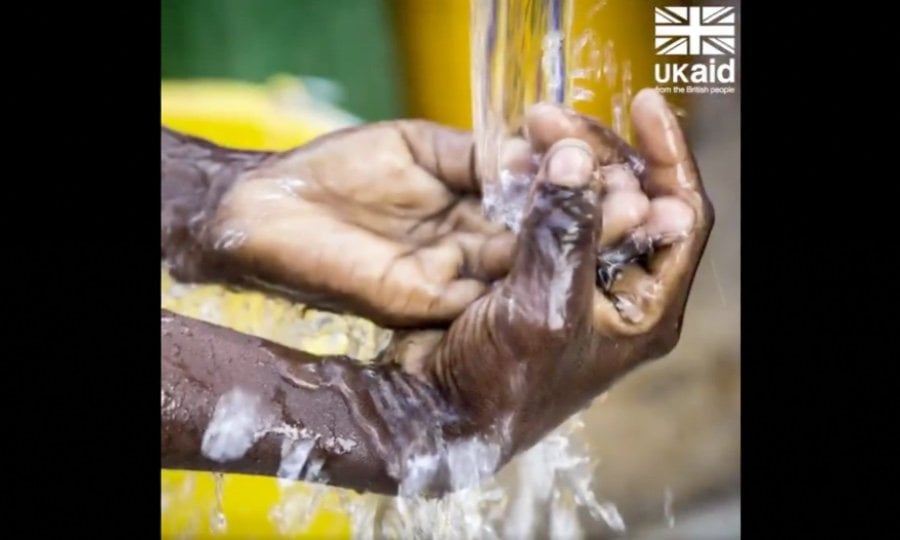LSHTM expertise helps global handwashing campaign reach a billion people
19 April 2021 London School of Hygiene & Tropical Medicine London School of Hygiene & Tropical Medicine https://lshtm.ac.uk/themes/custom/lshtm/images/lshtm-logo-black.png
The London School of Hygiene & Tropical Medicine’s (LSHTM) expertise in behaviour change and programme evaluation has played a major role in a global programme aimed at tackling the spread of COVID-19 to achieve a major milestone.
One billion people in developing countries have now been reached with hygiene promotion, hygiene products and access to handwashing facilities by the Hygiene and Behaviour Change Coalition (HBCC), a £100m programme led by the UK government and British business Unilever.
The partnership has provided financial resources, technical support, hygiene promotion materials, soap and sanitiser to low-resource settings. Over 140,000 staff, including community health workers and teachers, are also now promoting critical life-saving hygiene practices. These include encouraging effective handwashing, mask wearing and social distancing, and directly providing critical factual information about COVID-19.
LSHTM is a technical partner of the HBCC, with experts ensuring the programme is informed by the best science and targeted to where it has the greatest impact, and documenting new insights and innovation which are shared with a global audience.
Robert Dreibelbis, from LSHTM and campaign advisor, said: “Handwashing and hygiene are among the most effective ways to help prevent the spread of many diseases. The COVID-19 crisis has shown the important role that hygiene plays in health. Our hope is that this recognition of the vital role of hygiene continues at scale as a key part of COVID-19 recovery.
“We continue to work with HBCC to help understand the reach and impact of the programme and are engaging directly with HBCC’s many global partners to learn from and inform HBCC activities and better prepare for future pandemics.”
Working through the UN, charities and other partners, the campaign has also led to the installation of 500,000 handwashing stations around the world, including in Bangladesh, as well as health care facilities in Iraq.
Information campaigns across TV, radio and social media have been run in 37 countries to increase understanding of the benefits of handwashing with soap regularly and disinfecting surfaces to prevent the spread of COVID-19. These campaigns have also reached refugees living in some of the world’s worst humanitarian crises, such as South Sudan and Cox’s Bazar in Bangladesh.
75 million Unilever hygiene products have been delivered, more than three times the original target, to 60 countries, covering South America, Europe, Africa, Asia, South East Asia and the Middle East. These have been donated by Unilever’s leading hygiene brands, including Lifebuoy and Domestos.
Wendy Morton, Foreign, Commonwealth and Development Office Minister, said:
“This global hand washing campaign has saved lives and protected some of the most vulnerable communities around the world against COVID-19 and other diseases.
“No one is safe until we are all safe. That is why the UK has also provided £548 million for COVAX to deliver more than one billion vaccines around the world, as well as lobbying international partners to increase their funding.”
The campaign, funded by UK aid and Unilever, is also supported by partners, including UNICEF and the United Nations High Commissioner for Refugees, who are helping governments around the world on their own COVID-19 responses.
Charities and international organisations have developed new tools to communicate how COVID-19 is spread. Population Services International developed a WhatsApp chatbot to send new training to health workers while remaining socially-distanced and safe.
Rebecca Marmot, Chief Sustainability Officer at Unilever, said:
“Our business has a century-long history of promoting hygiene through our brands, but this unprecedented crisis called for an unprecedented response.
“Public-private partnership has been critical, allowing us to leverage the influence, expertise and networks of both government and business, and our strong network of NGO and UN partners, at home and overseas. We're pleased to work together with partners to implement initiatives to address the pandemic at scale.”
LSHTM's short courses provide opportunities to study specialised topics across a broad range of public and global health fields. From AMR to vaccines, travel medicine to clinical trials, and modelling to malaria, refresh your skills and join one of our short courses today.